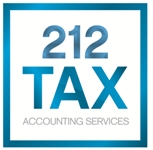Foreign Bank Accounts, Income and Taxes
Many people count overseas investments, including foreign currency, commodities or other valuable assets, as an important part of their asset diversification strategy. However, just because an investment is held in a foreign bank account does not mean it can escape the strict reporting requirements of the United States government.
If you have a foreign bank account – even if you’re self-employed, but living in another country while still a U.S. citizen – you must report the asset on a special return to the Internal Revenue Service.
Reporting Foreign Bank Accounts
If you or your business has assets in a foreign account overseas in excess of $10,000, the Internal Revenue Service expects you to report those assets on a special electronic report that is now called the FinCen-114 by June 30th of every year. This includes U.S. citizens who have assets overseas and those who have signing authority on such accounts – as well as green card holders who maintain foreign bank accounts.
Keep in mind that the $10,000 floor is an aggregate; for example, a taxpayer who maintains two overseas accounts with $6,000 in assets in each account must file the FBAR. Single filers with foreign bank accounts in excess of $50,000 and joint filers with foreign bank accounts in excess of $75,000 must also file Form 8938, which is attached to individual income tax returns each year.
The IRS includes a wide variety of investments in its definition of a foreign bank account. Reportable assets include brokerage accounts, annuities, certificates of deposit, insurance policies with an investment component, commodities accounts that have physical gold or sterling, and investment trusts. This means if you own overseas real estate through a trust, you’ll be responsible for reporting the value of that asset on the 8938 form.
Complying With FBAR
The penalties for failing to report assets in foreign bank accounts can be severe. Should the IRS suspect an individual or entity of attempting to hide assets overseas, the fines can total hundreds of thousands of dollars and include jail time. In general, if the IRS discovers the asset but believes noncompliance occurred because of a reasonable cause, a warning letter may be enough to ward off the harsh penalties associated with the rule. But if the IRS determines the violation is non-willful, the fine is at least $10,000 per account, per year of noncompliance. There have already been cases where certain taxpayers have been assessed penalties equal to 100% or more of their foreign bank account balances. Beats going to jail, but ouch!
If you have foreign accounts but have not yet disclosed them to the IRS, it’s not too late. By filing amended tax returns and including the FBAR forms (Fincen-114 & 8938) for every year you’ve had foreign assets, you may be able to protect yourself from costly penalties and interest.
While in certain situations 212 Tax recommends participating in the voluntary disclosure program with the help of an experienced tax attorney, it cannot hurt for you to speak or meet with us BEFORE going through that expensive and lengthy process.
Avoiding Mistakes
Giving and receiving gifts can get taxpayers into trouble with the foreign reporting requirement. Although gifts up to $14,000 don’t require reporting, anything over that amount must be reported on Form 709. If a U.S. taxpayer receives a foreign gift, it must be reported if its value exceeds $100,000.
If you hire a foreign vendor to perform work for you or your business, you must withhold 30% for the IRS and report it with forms 1042 and 1042-S. When the vendor applies for and received a tax identification number, he can file a nonresident tax return and attempt to secure a refund.
When it comes to income, all income must be reported – even if the money never came to the U.S, and even if you are a U.S. national who lives, works and banks overseas. If you’re able to prove foreign housing expenses, you may be able to exclude part of your income – up to $97,600 for tax year 2013.
For more information on foreign bank accounts, contact NYC tax firm 212 Tax Accounting Services.
Request a Consultation
We are able to work with your unique schedule including after-hour appointments, most weeknights, and weekends.
Call to action
Build Growth Opportunities with Extensive Business Financial Services
We serve clients in a range of industries, including hospitality, nightlife, real estate, legal, and medical.


